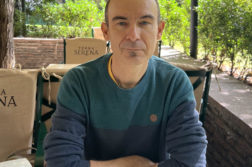EVER CONSIDER the irony that the common meaning of the word stonewall is “to engage in delaying tactics, to stall”? From all accounts, those who took the streets in Greenwich Village in 1969 were anything but hesitant. The moment had come to claim equal and viable personhood, and they seized it. Our movement is at a similar crossroads today, and this time, the survival of GLBT youth hangs in the balance. The question is, should we look to the future, or can we instead seize this moment to take action?
Developed in response to a spate of incidents of violence (inflicted by others, and by queer youths against themselves), Dan Savage’s “It gets better” campaign operates on the premise that “many GLBT youth can’t picture what their lives might be like as openly gay adults. They can’t imagine a future for themselves. So let’s show them what our lives are like, let’s show them what the future may hold in store for them.”
The voices captured in the “it gets better” narratives are poignant and send a powerful message of hope, affirmation, and love. But the message is static and one-dimensional, as I am not the first to point out. Blogger femmephane, for example, has critiqued Savage’s narrative of future happiness and found it whitewashed and simplistic, lacking any meaningful suggestions for taking action. Others have noted that the relentless focus on escaping from one’s environment—read small-town America—reduces much of the country to a monolithic stereotype of hopeless ignorance, a place to flee at the earliest opportunity.
Perhaps the most important critique of the IGB campaign is that it contains what may be a hollow promise: there’s no guarantee that it willl get better. Queer people of color continue to experience racism within the white-dominated “community”; those with low income face the invisibility of absence from the great American marketplace; transgender people, particularly those with female/feminine identities, face physical risks that greatly exceed those of other adults. The campaign obscures these realities while falsely suggesting that all will be well in the company of other GLBT people. This singleminded focus on a future narrative leaves GLBT youths with a vague and undefined sense of their own agency. Without specificity about how things get better, one is left with the sense that waiting—until one is older, has more money, or more autonomy—is the best strategy we can offer. But we can do more.
One example of meaningfully harnessing outrage from which we can draw inspiration is the movement to end child sexual abuse. Advocates working within the various strands of this movement revolutionized the way society views this abuse, shifting the onus of responsibility to those who perpetrate it. Change was largely accomplished by committed, caring survivor-citizens rather than paid employees of high profile advocacy groups. Case in point: Voice of the Faithful (VOTF), the Catholic lay organization started in Boston in 2002, primarily by survivors, to bring public awareness and action to the scourge of sexual abuse by priests. Through strategic community mobilization, the group successfully advocated for greater accountability by church leaders, extended the statute of limitations for those experiencing sexual abuse as children, and pushed for fair and swift damage settlements for those with proof of abuse. It is unthinkable that child abuse victims would be advised to simply wait out their abuse until a time when they would be old enough to escape. What, truly, is the “change” we offer when we advise our GLBT children to simply hold on?
History tells us that change comes when we invest our time, money, and energy to bolster support services for GLBT youth in our community. Change comes when we demand that our national political and lobbying organizations, those with fancy headquarters, cultural capital, and a track record of effective advocacy, put youth safety and survival at the very top of their agenda. Change comes when we ask hard questions of our elected and appointed officials—school boards, superintendents, and others—about policies and programs to address bullying in schools, and when we push for better anti-bullying legislation and demand a commitment to GLBT youth empowerment among public servants. Above all, change comes when we take the time to listen to young people and empower them to create messages of survival for each other.
Susan B. Marine, assistant professor of higher education at Merrimack College, is the author of Stonewall’s Legacy: Bisexual, Gay, Lesbian, and Transgender Students in Higher Education.




Discussion1 Comment
Well I suggest the author, having set the bar so high as to what is considered effective activism, should have quit her prestigious and well-paid job as a Harvard Dean, cashed out her 401K and started that amazing project she prefers over the white male classist sexist ableist privileged crime against queerness that evil Dan Savage inflicted on those poor defenseless gay, oops I mean queer demisexual heteroflexible teens, that were apparently harmed not helped by youtube videos. No good deed goes un-critiqued by bitter academics apparently…